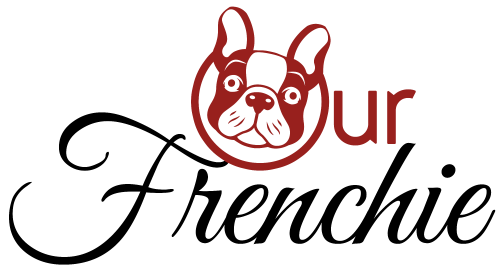Health & Care
French Bulldog Healthy Coat Guide
Page Contents
If you are a French bulldog owner and looking for healthy coat tips, then you have come to the right place. List of tips to keep Frenchie coat healthy:
1. Grooming
French bulldog coat is made up of short, smooth fur. Frenchie’s coats can come in a variety of colors, from black to brindle to white. These pups are not considered a hypoallergenic breed, but they’re also not known for being excessive shedders. Grooming is an important part of keeping that sleek coat at its best, and following a few simple grooming suggestions will help keep your dog in tip-top adorable shape:
1.1. Brushing
Making a rubber grooming glove part of your brushing routine is a great way to remove dead hair before it ends up on the carpet and to promote new hair growth. Rubber grooming or brush gloves also help to distribute the oil on your dog’s skin, keeping their entire coat healthy and lustrous.
1.2. Bathing
Bathing your Frenchie should be part of your grooming routine every one to two months. Excessive bathing will dry out your dog’s skin, making it prone to irritation. So, unless your dog has a medical reason for receiving more frequent baths, try to limit the number of baths to 5 or 6 times a year.
If moisture becomes trapped in these rolls, your dog could experience an infection, so be sure to check that these areas are completely dry after bathing. It’s also a great idea to check these areas periodically for irritation. If you notice redness or irritation under these skin flaps, clean them out with a gentle soap or dog-safe baby wipe and then let dry completely. In areas with higher humidity, you’ll want to check these folds more frequently.

2. Diet
A healthy diet is an integral part of maintaining your Frenchies health. The healthier your dog, the healthier their coat will be! Some sources indicate that a dull coat can be attributed to a less than ideal diet, but which ingredients should you look for when choosing your Frenchies food? Protein is at the top of the list. According to the Merck Veterinary Manual, adult dogs should eat a diet that is at least 18% protein! This goes for Frenchies as well.
Besides protein, omega-3 and omega-6 fatty acids are likewise important to your dog’s health and coat health. These fatty acids can be found in many commercial dog foods, but they may not always be biologically available to your dog in these forms. Biological availability, or “bioavailability”, refers to the amount of an active ingredient that can be absorbed and utilized by your dog’s body. Natural sources for these oils can be found in fish, such as tuna, salmon, or sardines, as well as chicken. Other sources can be found in vegetable oils such as sunflower, safflower, corn, canola, and soybean oil.
Signs of an omega-3 deficiency in your dog may be hard to spot but can include hair loss, weight gain, dull coat, eye problems, and muscle weakness. Only your vet can determine if omega-3 deficiency is causing these issues, so be sure to take your dog in for a checkup if you notice any of these changes. Always be sure to check with your veterinarian before switching your dog to a new diet to ensure that your pup’s nutritional needs are being met.
2.1. Raw Food Diet
The raw food diet for dogs was developed in 1993 by an Australian veterinarian named Billingshurst and has become an increasingly popular trend. This diet, also referred to by the acronym B.A.R.F. (Bones And Raw Food), has been gaining popularity in family-pet feeding regimens, but not necessarily with the majority of veterinarians.
One of the purported benefits of the B.A.R.F. diet is a healthier, shinier coat. Because Frenchie’s can be prone to allergens that affect their skin, some French Bulldog owners have turned to a raw food diet to lessen exposure to these allergens which may be present in commercial dog food. As with any new or experimental diet, there are drawbacks to this one as well. It’s important to discuss with your veterinarian before attempting to switch your dog’s diet. Because Frenchies are prone to allergies and food allergies in dogs are sometimes caused by animal proteins, this diet may not be an ideal choice for French Bulldogs.
2.2. Supplements
Supplements to improve your Frenchies coat health can come in several forms, including rubbed oils, chewables, French bulldog treats or even shampoo. Choosing the appropriate supplements is a task that should be undertaken with input from your veterinarian. Because dog supplements are not heavily regulated, safety is a concern. Be sure to select your supplements from reputable sources. Omega-3 fatty acid supplements are a popular addition to many Frenchie owner’s routines, but it may take some experimentation with different brands and formulas to find the ideal formula for your dog’s needs.
3. Allergies
The most common skin problems facing Frenchies are allergies to food, environmental factors, or fleas. Skin allergies will typically manifest as hives, hot spots, sores, or flaky skin. You may also notice digestive issues if the allergies are caused by food intolerance. Excessive itching and biting can cause infection, so it’s important to treat these issues before they become a bigger problem.
3.1. Food Allergies
Food intolerance in dogs is frequently caused by animal proteins, such as those in dairy products, chicken, and eggs, or soy protein or gluten. One of the best ways to identify a food allergy is by conducting an elimination trial, which includes feeding your dog a hypoallergenic diet for a period of time determined by your vet and reintroducing potential allergens on a set schedule. Blood tests, called serum IgE tests, may be available from your veterinarian, as well. Avoiding foods that cause an allergic reaction to your dog is usually the best way to treat this issue.
3.2. Environmental Allergens
Environmental allergies may be caused by dust, pollen, or mold. The symptoms from these allergic reactions may be worse during certain times of the year, similar to human seasonal allergies. Avoiding allergens is the best way to treat environmental allergies, but when this isn’t possible your vet may be able to prescribe a medication to mitigate the effects of the allergen, or a medicated shampoo and bathing regimen.
3.3 Fleas
Some Frenchies are highly allergic to flea saliva. The allergic reaction to flea bites is called flea allergy dermatitis. Flea prevention is the best way to treat this condition.
Hopefully with these tips you’ll be able to keep your Frenchie’s coat looking healthy and luxurious!
Thank you for reading OurFrenchie.com posts.

